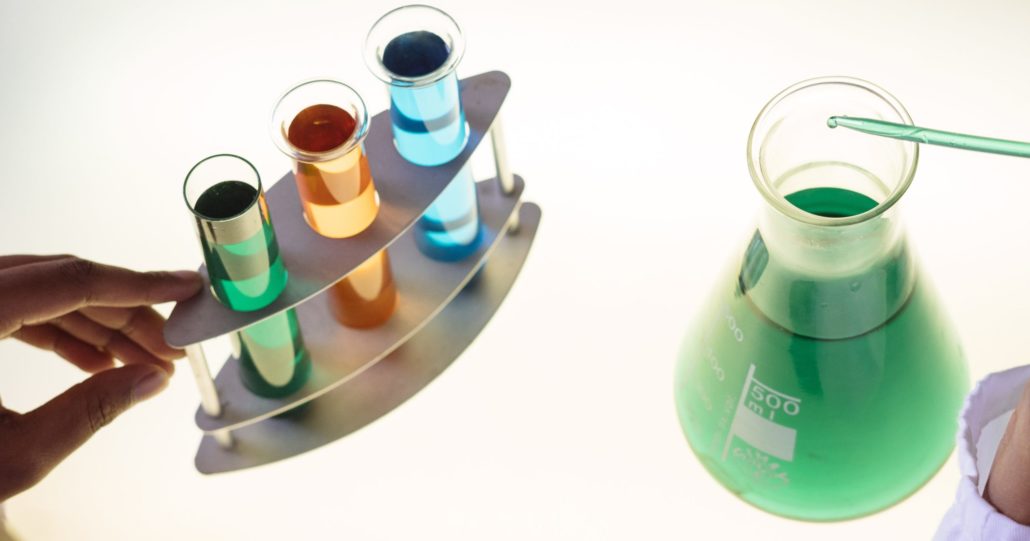People take supplements to improve or optimize their health. So what happens when you look at the label, and the ingredient list is filled with unrecognizable additives?
According to estimates by The National Institutes of Health, as much as one-third of U.S. adults experience an anxiety disorder, and about 10 percent of the population has depression. There is reason to believe the numbers might be significantly higher because diagnosing these conditions is both complex and complicated.
A mental health professional will begin with a focus on your symptoms – which ones you have, how long you’ve experienced them, how often they occur, and how severe they are. Factors like the season and time of year, social circumstances, life events, and genetics all play a role. But like many conditions, anxiety and depression are multifactorial, and nutrition and daily diet habits (and the gut microbiome) play an undeniable role in influencing mood, energy, cognition, and overall health.
One thing you can do is examine your diet and its impact on blood biomarkers that can influence your symptoms relating to anxiety and depression. Test the following blood levels and learn how to optimise specific micronutrients if anxiety and depression are of concern to you.

B vitamins
The B vitamin family includes eight water-soluble vitamins that perform multiple functions in the body. They act as coenzymes and are needed to turn the food you eat into usable energy, for DNA/RNA synthesis and repair, for methylation, and in the synthesis of numerous neurochemicals and the signaling molecules that impact the brain – like serotonin and dopamine – the common targets for antidepressant medications.
There are decades of research on B vitamins and the brain, focusing on folate (also known as vitamin B9), vitamin B12, and vitamin B6; adequate levels of all three of these are needed for optimal physiological and neurological functioning.1 Research indicates higher vitamin B12 levels are significantly associated with a better probability of recovery from major depression.2
Most of the B vitamins are made by plants and found in the vegetables, fruits, and grains we eat regularly. The highest sources are foods like leafy greens, seeds, legumes, and whole grains, except for vitamin B12, which is found in animal sources like seafood, poultry, eggs, and dairy products. When optimised, the gut’s microbiome plays a role in producing B vitamins and supporting blood levels of these nutrients. If your diet or gut are not sufficient, or you have higher needs (such as athletes, those with digestion or absorption issues, pregnant women, and the elderly) then you might benefit from a B-complex supplement.
A B-vitamin deficiency can present with similar signs and symptoms to depression and anxiety; therefore, if you experience either of these, blood levels of B vitamins should be checked regularly. A deficiency can cause fatigue or extreme tiredness, irritability, noticeable heartbeats or palpitations, headaches, faintness, and pale skin. Research shows a B-vitamin deficiency most often manifests as either a folate or vitamin B12 deficiency.3
Vitamin D
Vitamin D has received an increased focus on its role in depression for several reasons. First, there are vitamin D receptors in the prefrontal and cingulate cortices – regions of the brain that regulate mood. Next, scientists believe depression is a condition with elevated levels of systemic inflammation. Vitamin D has an association with depression and inflammation, theorized to be through immune-modulatory pathways. And last, emerging insights show vitamin D has neuroprotective properties, also thought to be through these anti-inflammatory pathways.4
Newer science also suggests vitamin D modulates the hypothalamic-pituitary-adrenal axis, a pathway that regulates the production of epinephrine, norepinephrine and dopamine, and protects against the depletion of dopamine and serotonin.5 For all of these reasons, sufficient vitamin D blood levels are especially important to maintain when someone is concerned about their mental health.
We all know that the sun is a great source of vitamin D, but protecting your skin from harmful rays might be more important. The best food sources of vitamin D include salmon, tuna, sardines, beef liver, and eggs, as well as fortified milk, juices and cereals. Because of the limited number of food sources, it is not uncommon for individuals to have less than sufficient vitamin D levels, which could in turn contribute to increased symptoms of depression and anxiety.6
Iron
According to the World Health Organization, iron deficiency is one of the most common micronutrient deficiencies around the world, known to affect more than 300 million people, and is seen twice as often in women as in men. As early as the 17th century, iron deficiency was described as “a nervous state of hysteria,” and these days the classic clinical signs of iron deficiency include fatigue, muscle weakness, reduced exercise capacity, shortness of breath, and changes in mood and behavior.7
Iron is a cofactor for the enzymes needed for synthesis of the amino acids phenylalanine, tyrosine, and tryptophan; is a limiting step in the synthesis of the neurotransmitters dopamine, serotonin, and norepinephrine (indirectly); and is also necessary for the production of brain-derived neurotrophic factor (BDNF). The balance of the three neurotransmitters can determine the course of depression, its symptoms, and its treatment.7
Although iron is necessary for brain and mood support, you can also have too much of a good thing. Iron overload in the brain is implicated in the development of neurodegenerative disorders like Alzheimer’s, Parkinson’s, and Huntington’s diseases, and also appears to alter anxiety-like behavior and mood like iron deficiency does.8 These findings support the idea that imbalanced iron metabolism plays a pivotal role in influencing anxiety and emotional behaviors.
The rule of thumb with iron food sources is, the redder the meat, the higher it is in iron. Good sources also include poultry, eggs, seafood, and non-heme iron sources like fortified cereals or breads, beans, chocolate, lentils, leafy greens, nuts, and seeds. Athletes or high-volume exercisers, pregnant women, some infants and children, those with poor iron absorption, and others such as vegans might benefit from an iron supplement to help maintain adequate iron levels.
Omega-3 fatty acids
Fatty acids are most abundant in the brain, and the highly diverse composition of fatty acids in the brain is associated with the evolution of higher cognitive abilities.9 In addition to helping maintain the structure and function (acting as a protective barrier) of every cell, fatty acids are needed for cellular transport and energy storage, and they act as signalling molecules and impact transmembrane proteins. The focus should be on omega-3 fatty acids as opposed to omega-6s or others, because omega-6s have become more common in the Western diet and are thought to promote many inflammatory-related diseases, whereas a diet that is higher in omega-3s supports healthy inflammatory balance.10
Our brains have different compositions of fatty acids because of variations in age, sex, neuronal activity, stress, trauma, and diet. Dietary deficiencies and lower blood levels of omega-3 fatty acids are associated with an increased risk of developing many mental health and neurological disorders.9
Some of the earlier research shows reduced omega-3 fatty acid concentrations in red blood cells in individuals with depression,11 and large epidemiological studies have shown correlations between fish consumption and the prevalence of depression. Other studies have found low omega-3 fatty acid levels in patients with anxiety disorders and higher serum EPA levels associated with protection against post-traumatic stress disorder (PTSD).12 These findings suggest that optimising blood levels can have a positive effect on mood and behavior.
Symptoms of an omega-3 deficiency include fatigue, poor memory, dry skin, heart palpitations, mood swings, and poor circulation.
- Kennedy DO. B vitamins and the brain: mechanisms, dose and efficacy – a review. Nutrients 2016;8(2):68.
- Hintikka J, Tolmunen T, Tanskanen A, Viinamäki H. High vitamin B12 level and good treatment outcome may be associated in major depressive disorder. BMC Psychiatry 2003;3:17.
- Green R. Indicators for assessing folate and vitamin B-12 status and for monitoring the efficacy of intervention strategies. Am J Clin Nutr 2011;94(2):666S-6672S.
- Menon V, Kar SK, Suthar N, Nebhinani N. Vitamin D and depression: a critical appraisal of the evidence and future directions. Indian J Psychol Med 2020;42(1):11-21.
- Wierzbicka JM, Żmijewski MA, Piotrowska A, et al. Bioactive forms of vitamin D selectively stimulate the skin analog of the hypothalamus-pituitary-adrenal axis in human epidermal keratinocytes. Mol Cell Endocrinol 2016;437:312-322.
- Akpınar Ş, Karadağ MG. Is vitamin D important in anxiety or depression? What is the truth? Curr Nutr Rep 2022;11(4):675-681.
- Berthou C, Iliou JP, Barba D. Iron, neuro-bioavailability and depression. EJHaem 2022;3(1):263-275.
- Kim J, Wessling-Resnick M. Iron and mechanisms of emotional behavior. J Nutr Biochem 2014;25(11):1101-1107.
- Lange KW. Omega-3 fatty acids and mental health. Global Health Journal 2020;4(1):18-30.
- Grosso G, Galvano F, Marventano S, et al. Omega-3 fatty acids and depression: Scientific evidence and biological mechanisms. Oxid Med Cell Longev 2014;2014:313570.
- Glen AI, Glen EM, Horrobin DF, et al. A red cell membrane abnormality in a subgroup of schizophrenic patients: Evidence for two diseases. Schizophr Res 1994;12(1):53-61.
- Su KP, Tseng PT, Lin PY, et al. Association of use of omega-3 polyunsaturated fatty acids with… : a systematic review and meta-analysis. JAMA Netw Open 2018;1(5):e182327.
Share:
Related Posts

Why Would I Test Positive To Foods On A Dietary Antigen Test That I Don’t Eat?
Written by Precision Point Diagnostics | 2025 True food allergies are when the body develops antibodies against a particular food, or a related food. Patients

Mitochondria: The Overlooked Link in the Gut-Brain Axis
Written by Dr Sarah Daglis | 2025 The gut-brain axis is well-established, but there’s more to this dynamic relationship than meets the eye. A vital

Unlocking Respiratory Resilience Through Functional Medicine
Article written by Dr Michelle Clark Naturopathic Doctor Clinical Education Manager, FxMed Published 1 September 2024 People take supplements to improve or optimize their health.

AHCC: Unlocking the Immune Intelligence of Shiitake Mycelia
Article written by Jessica Sanders BSc. (Psy), Dip Nat, Dip Med Herb Technical Projects, FxMed Published 1 September 2024 People take supplements to improve or

Life After Weight Loss Meds
Kathi Head, ND February 20, 2025 You would have to have been spending glorious hours lying on the beach on a desert island not to


